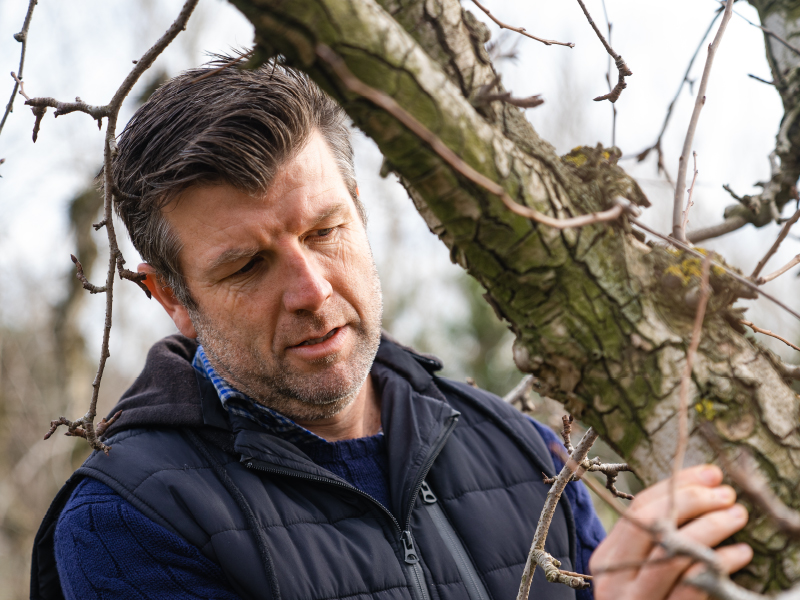
Hort Innovation supports the coordination and integration of several projects, which together make up the ‘PIPS3’ program for the apple and pear industry (the third iteration of the Productivity, Irrigation, Pests and Soils program).
The challenge
The apple and pear industry needs smarter, more sustainable orchards to maximise fruit quality, yield and labour efficiency with more effective biological pest and disease management.
Meet Jason
The PIPS3 program’s Advancing Sustainable and Technology-Driven Apple orchard production systems (AP19003) project, has established its ‘Crop Load’ experiment in a Ruby Pink orchard block at Plunkett Orchard in Victoria’s Goulburn Valley. Physiological and sensing tool studies are underway there to validate a rapid orchard assessment tool, using a ground-based mobile sensing platform equipped with LiDAR and optical cameras, known as Green Atlas CartographerTM, to determine crop load for optimum fruit size.
Jason Shields is the manager of Plunkett Orchards, and he’s been impressed with what he’s seen first-hand from the technology so far and has high hopes for the near future.
“Initially we trialled it (GreenAtlas CartographerTM) in the pilot stages, a couple of seasons ago,” he says. “We were really happy with it. The mapping was really impressive. It was able to clearly show the uniformity (or more to the point, the lack of uniformity) within a block over flowering.”
This automated technology provides an accurate determination of crop yield and consistency within a block, which will improve the practical operations of the orchard.
The project team is also using data from Jason and other growers to develop tools that will quickly let growers know what crop load to leave on their trees to achieve the desired outcome. It’s also helping to determine relationships between fruit position and light exposure on colour development, sunburn damage, fruit quality and floral initiation.
“I think there’s so much potential in this, it’s really exciting. But to effectively use new technology, robots, etc, we need to have a consistent canopy, a consistent yield throughout the block, and this technology is helping us to do that.”
The approach
Hort Innovation is investing in new apple and pear technology and biological control methods for the industry via PIPS3, which is building on the many successes of the previous PIPS programs.
The program works collaboratively with commercial orchards to trial the latest high-tech and sustainable systems, including better biological disease management, soil health and nutrition irrigation, automation, and labour efficiency.
The impact
This whole-of-system approach is enabling researchers to meet the challenges identified by Australian apple and pear growers – better management of orchards in variable climates, customer expectations, effective resource management and improved sustainability using biological solutions.
This project places Australian apple and pear growers at the forefront of the industry, continually improving orchard production systems, maximising quality and yield, while increasing nutrient use efficiency under increasingly variable climates.
